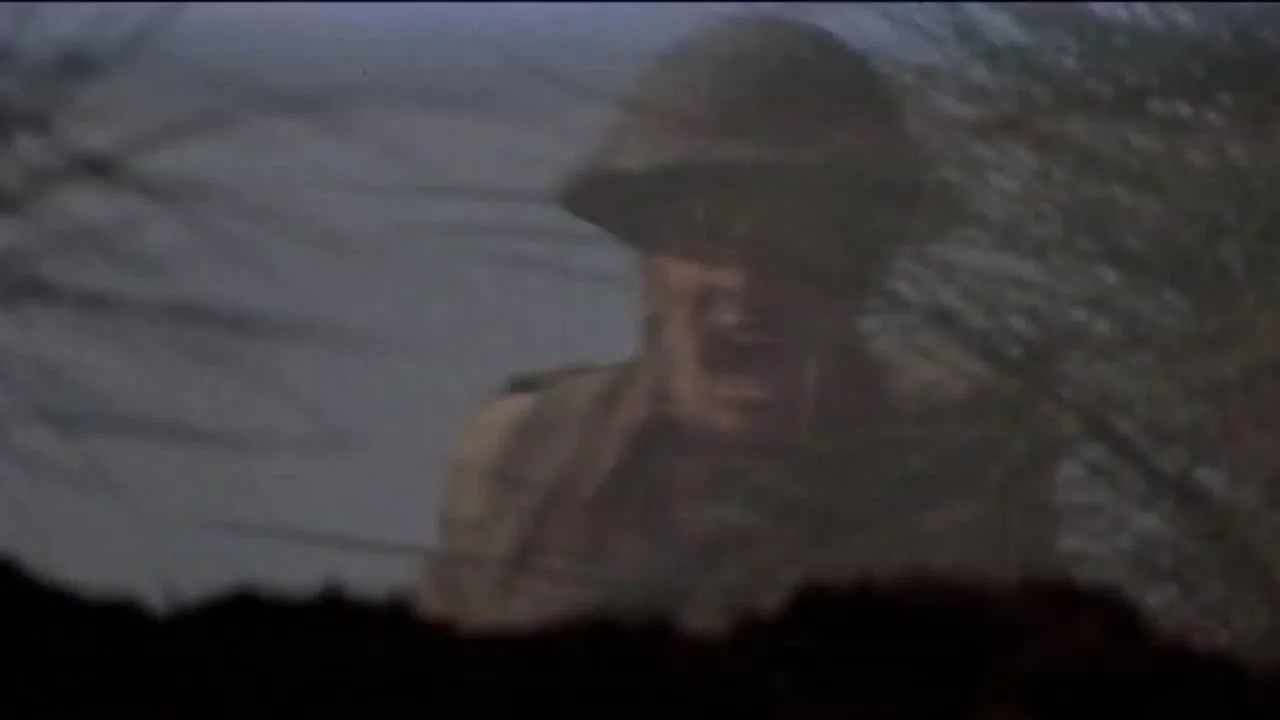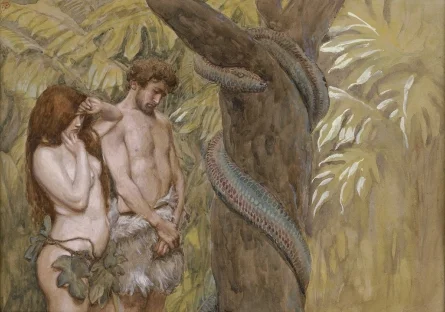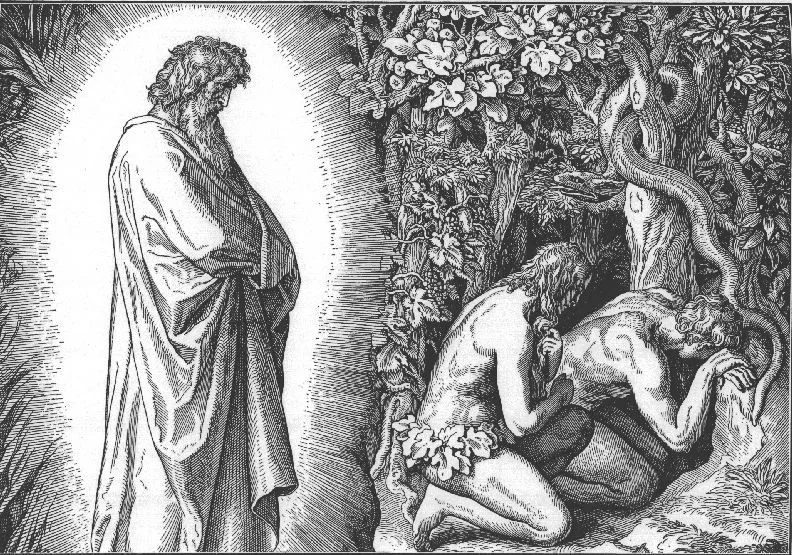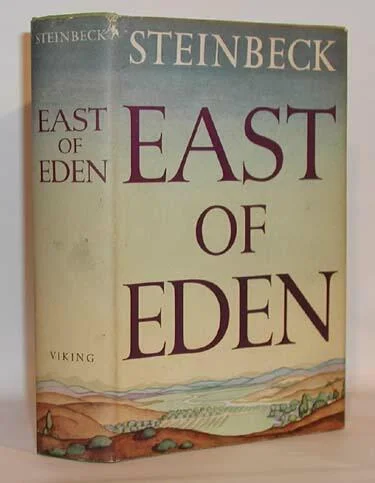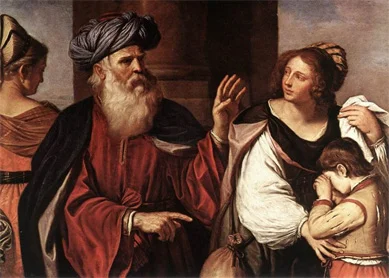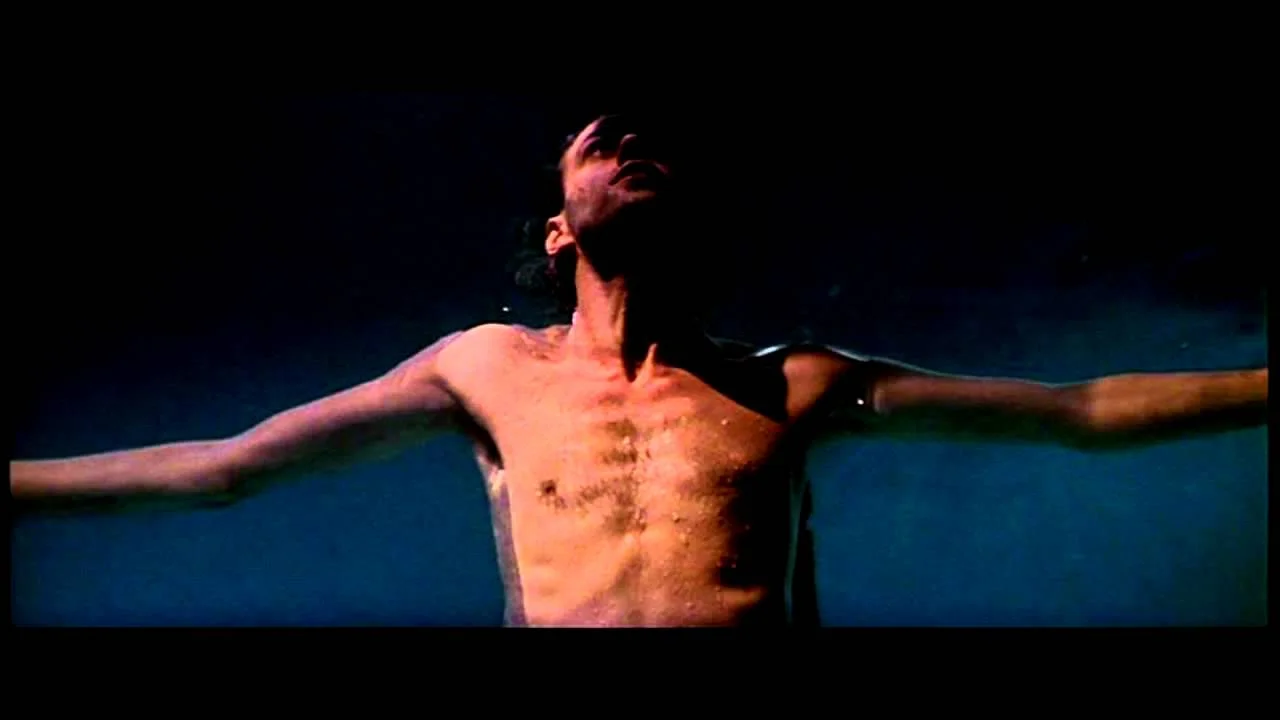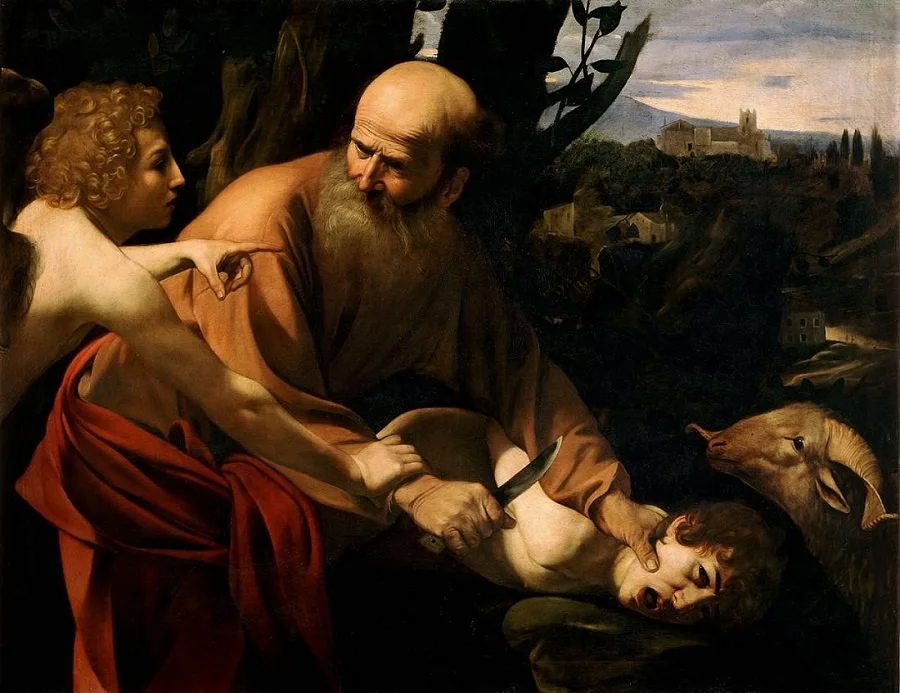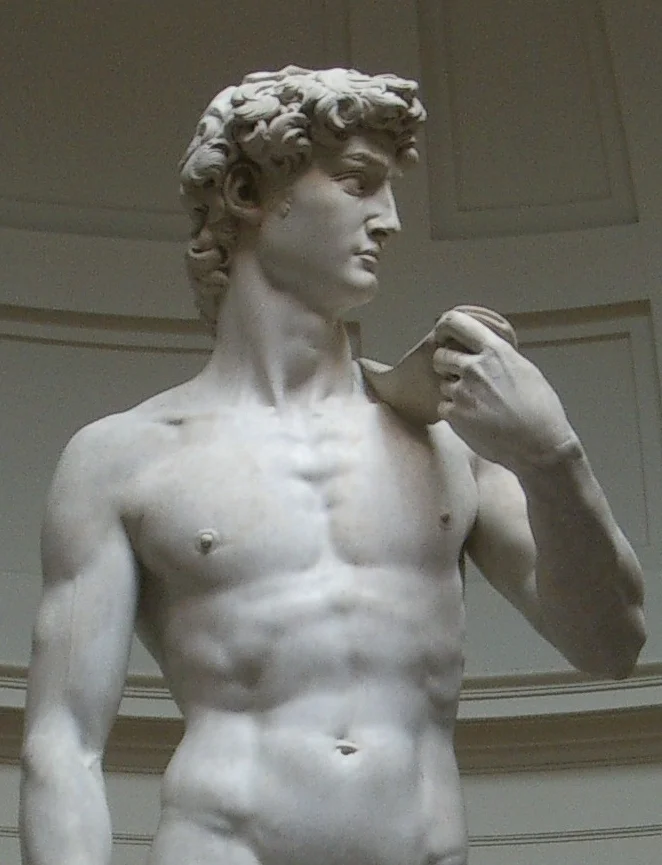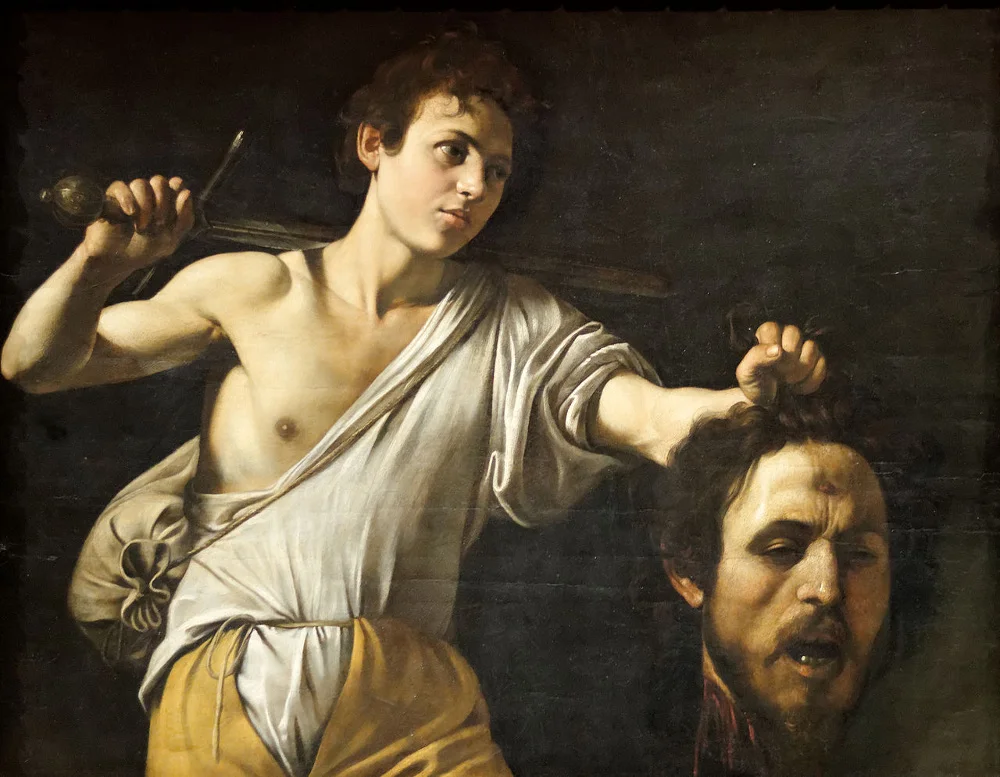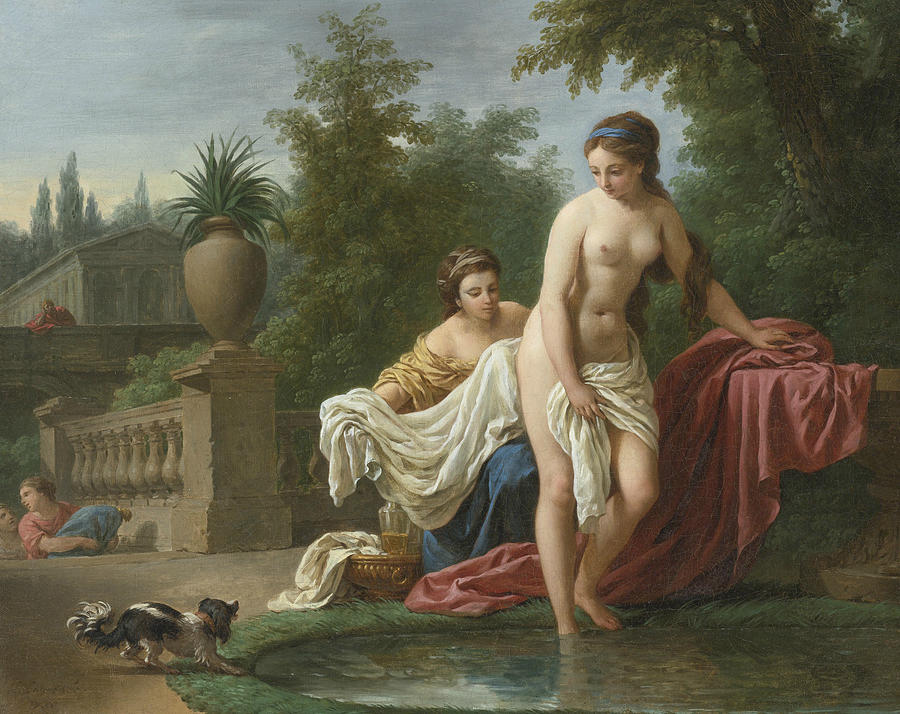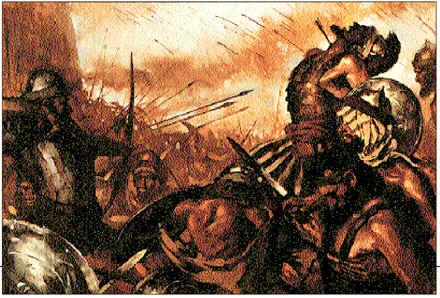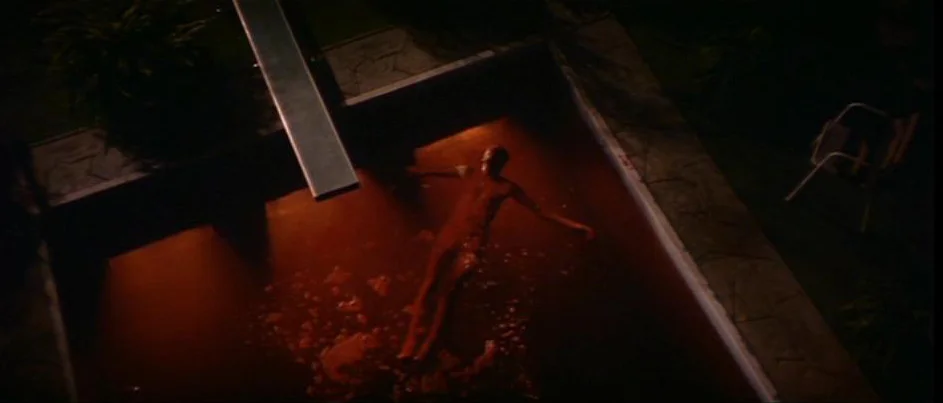The Ecology of Pink Floyd's 'The Wall': It's Genesis & Revelation -- Chapter 2 "The Thin Ice"
The Thin Ice acts as an origin story for the character of Pink. In The Wall movie, Pink's father's time spent in WWII is relived through flashbacks and these haunted memories serve as foreshadowing of the struggle that is to come for himself.
Childhood is a forcible time--this is magnified even more so for the Creative, because of the extraordinary ability to observe, to interpret, and to analyze life and filter it through action. Sensitivity, is the trait that the Creative uses like no other. The ability to feel, the needing to breathe; the wanting to create order out of chaos is what he does, because he can't do anything else.
The Thin Ice is written as a message to Pink from his parents. It's a manifesto to begin his life in his own way; it even holds a warning, "If you should go skating, On the thin ice of modern life, Don't be surprised when a crack in the ice, Appears under your feet" (lines 8-9,12-13). The song serves as a warning about the past, the present, and the future. The song says, "Hey you can choose not to go out there, but if and when you do bad things might happen."
The lyrics of The Thin Ice:
The Thin Ice
1 Momma loves her baby
2 And daddy loves you too.
3 And the sea may look warm to you babe
4 And the sky may look blue
5 But ooooh Baby
6 Ooooh baby blue
7 Oooooh babe.
8 If you should go skating
9 On the thin ice of modern life
10 Dragging behind you the silent reproach
11 Of a million tear-stained eyes
12 Don't be surprised when a crack in the ice
13 Appears under your feet.
14 You slip out of your depth and out of your mind
15 With your fear flowing out behind you
16 As you claw the thin ice.
God's Curse by James Tissot
The very first parents, according to the Bible where Adam and Eve. They were created into a perfect world where they served as the origin story for us all. The thought of 'The Wall' had not been conceived--God knew of the possibility, but that struggle had not yet been entertained by the mind of a human. "The man and his wife were both naked, and they felt no shame" (Gen. 2.25).
Taken directly from Genesis, shame can be looked at as the first brick in 'The Wall' both for the fictional character of Pink and the Creative.
"Momma loves her baby, And daddy loves you too" (lines 1-2).
The failure of man is imminent, as with Pink, and as with the Creative. But what is lost, is the innocence, that this failure originally comes with.
One only has to look at a child learning a task for the first time. He looks at his errors in joy, as it gives him one more chance to try again. As both Adam and Eve were 'naked', or they were vulnerable and open as the child is, as the Creative is in his best state, and they were without 'shame'.
Contrast that with the Biblical passage from Genesis chapter 3, "Then the man and his wife heard the sound of the Lord God as he was walking in the garden...and they hid from the Lord God...[He] called to the man, 'Where are you?'" (Gen. 3.8-9)
Adam and Eve hiding in shame.
"Man answered, 'I heard you in the garden, and I was afraid because I was naked; so I hid'..."Who told you that you were naked?" (Gen. 3.10-11)
After the failure of Adam and Eve, God "drove the man out, he placed them on the east side of the Garden of Eden" (Gen. 3.24).
John Steinbeck's 'East of Eden', taken from the result of Adam and Eve's fall, deals directly with the result of the first parents. The book speaks of a son realizing for the first time that his father is not a good man as Stienbeck narrates the characters feelings:
"And there is one sure thing about the fall of gods (speaking of the boy's father): they do not fall a little; they crash and shatter or sink deeply into green muck. It is a tedious job to build them up again; they never quite shine. And the child's world in never quite whole again. It is an aching kind of growing.”
"And the sea may look warm to you babe, And the sky may look blue" (lines 3-4)
Adam and Eve weren't perfect, just as our own parents aren't--as we fall short as well. The Thin Ice details this mis-conception in the third and fourth line, "and the sea may look warm to you babe, And the sky may look blue."
The fall of man and the shame that stems from it becomes another brick in 'The Wall'.
"But ooooh Baby, Ooooh baby blue, Oooooh babe." (lines 5-7)
But, God didn't stop men from becoming fathers.
As the Creative shouldn't stop his work.
Abraham casting out Hagar and Ishmael.
In the Bible, Abraham was looked at as the Father of the Jewish nation. Fairchild says, "[he] was a man of great faith and obedience to the will of God. His name in Hebrew means 'father of a multitude.'"
"The Lord had said to Abram (the name that Abraham had previously been known by), 'Leave your country, your people and your father's household and go to the land I will show you" (Gen. 12. 1).
Abraham had overstayed his welcome at home. As the story goes, he didn't leave his parent's home til he was way past middle-age in our terms today. He had to leave that protection of his 'father', as Steinbeck spoke about, and go out into the wilderness and begin the journey towards the 'land that he would be shown' by God.
And, hence comes the warning:
"If you should go skating, On the thin ice of modern life." (lines 8-9)
The character of Pink dwelled in the past of his father's sin which led to his own of apathy. It's the Creative has to leave the shame of her first failure and behind to try again.
Abraham began to learn the process. He learned to trust God. "Do not be afraid...I am your shield, your very great reward" (Gen. 15.1.).
Abraham wanted a son, but his wife was old, and had deemed barren. However, in a turn of events, it changed with belief, his wife "became pregnant and bore a son to Abraham in his old age at the very time God had promised him" (Gen. 21.2.)
Caravaggio's "Sacrifice of Isaac"
Abraham loved his son beyond measure and he was tested in that love. "Then God said, 'Take your son, your only son, Isaac, whom you love, and go to the region of Moriah. Sacrifice him there as a burnt offering..."(Gen.22.2).
"Dragging behind you the silent reproach, Of a million tear-stained eyes" (lines 10-11).
Issac was what Abraham loved more than anything in the world. The work of the Creative is what he loves most. God called Abraham to let his love go--if the Creative obeys his call, then he needs to let his work go and release it out into the world. This is a beginning but crucial step, because it is one that most Creatives don't get over. They spend years and years behind this first brick in the wall.
They fear, the shame, the rejection, that may come with the sacrificing of their child: their art.
Michelangelo's "David"
If the Creative can have any hope in a Biblical character it would be that of King David. David is the ideal representation the underdog. Overshadowed by his brothers during his youth, overlooked for the military conquest, he stood up for a whole nation of Israel fighting the giant of Goliath when no one else would.
"Dragging behind you the silent reproach
Of a million tear-stained eyes" (lines 10-11).
Caravaggio's "David with the Head of Goliath"
After surmounting that first battle, it's a temptation to bask in the glory of the victory--David began to do it, Pink did it, and it can be a folly followed by the Creative as well: "...For wide is the gate and broad is the road that leads to destruction, and many enter through it" (Matt. 7.13).
"Don't be surprised when a crack in the ice, Appears under your feet" (lines 12-13).
Jack Zavada shared that, "David was a man of contrasts...He was single-mindedly devoted to God, yet at other times he failed miserably, committing some of the most serious sins recorded in the Old Testament."
That "crack in the ice" undoubtably appears under your feet the Creative's feet whenever he embarks in his work. As it did for David.
"David And Bathsheba" by Louis-Jean-Francois Lagrenee
Words that were sung by Jeff Buckley and written by Leonard Cohen were about David's experience witnessing the beauty of Bathsheba in the song Hallelujah:
"Well your faith was strong but you needed proof
You saw her bathing on the roof
Her beauty and the moonlight overthrew ya"
David was one of the most well renown authors of the Bible, with the majority of the book of Psalms being attributed to him--he overcame many things in his life, but he struggled with himself.
The book of 2 Samual recalls a time when David chose poorly, "Then it happened one evening that David arose from his bed and walked on the roof of the king’s house. And from the roof he saw a woman bathing, and the woman was very beautiful to behold. So David sent and inquired about the woman. And someone said, “Is this not Bathsheba, the daughter of Eliam, the wife of Uriah the Hittite?” 4 Then David sent messengers, and took her; and she came to him, and he lay with her, for she was cleansed from her impurity; and she returned to her house. 5 And the woman conceived; so she sent and told David, and said, 'I am with child.' (2 Sam. 11.2-5)
What did David do you ask? Did he admit to being in the wrong and go apologize to the man who he wronged? Did he start of anew by admitting the fault to himself? No, he didn't do either--instead he worked at covering up his mistakes even to the point where he murdered the man whom wife he had slept with.
"In the morning it happened that David wrote a letter to Joab and sent it by the hand of Uriah. And he wrote in the letter, saying, 'Set Uriah in the forefront of the hottest battle, and retreat from him, that he may be struck down and die.' So it was, while Joab besieged the city, that he assigned Uriah to a place where he knew there were valiant men. Then the men of the city came out and fought with Joab. And some of the people of the servants of David fell; and Uriah the Hittite died also" (2 Sam. 11.14-6).
Uriah killed in battle.
Then the chicken came home to roost. The prophet Nathaniel came knocking on David's door with a story, "There were two men in one city, one rich and the other poor. The rich man had exceedingly many flocks and herds. But the poor man had nothing, except one little ewe lamb which he had bought and nourished; and it grew up together with him and with his children. It ate of his own food and drank from his own cup and lay in his bosom; and it was like a daughter to him. And a traveler came to the rich man, who refused to take from his own flock and from his own herd to prepare one for the wayfaring man who had come to him; but he took the poor man’s lamb and prepared it for the man who had come to him" (2 Sam. 12. 2-4).
David was outraged upon hearing the story. "So David’s anger was greatly aroused against the man, and he said to Nathan, “As the Lord lives, the man who has done this shall surely die!" (2 Sam. 12. 5).
At the time, David had lost the ability to self-reflect on his life. He had not yet admitting to the sins that he had committed and was blind to his errors. The Creative walks in the ways of David when he rejects early constructive criticism of his work. It's easy for the Creative to fall into the trap of laying around the 'kingdom' of his works waiting for the admirers to come, as David did with Bathsheba, and not continuing to do the work.
"Then Nathan said to David, 'You are the man!'' (2 Sam. 12. 7).
"You slip out of your depth and out of your mind, With your fear flowing out behind you, As you claw the thin ice" (lines 14-16).
Pink sat in the pool of his pain, David tried to hide his wrongdoing, and on the way up the Creative builds the wall that will only serve to hinder him later.
-- Dan
Works Cited
Cohen, Leonard. Jeff Buckley. "Hallelujah." Sony/ATV. MP3 file.
Fairchild, Mary. “Meet Abraham, Father of the Jewish Nation.” ThoughtCo, 22 Mar. 2017, www.thoughtco.com/abraham-father-of-jewish-nation-701196. 1 May 2018.
Steinbeck, John. East of Eden. New York: Penguin Group, 1992. Print.
The Holy Bible. Trans. Ronald Youngblood et al. Grand Rapids: Zondervan, 1984. Print. New Intl. Vers.
Zavada, Jack. “How Well Do You Know King David?” ThoughtCo, ThoughtCo, 30 Mar. 2018, www.thoughtco.com/king-david-man-after-gods-heart-701169.

